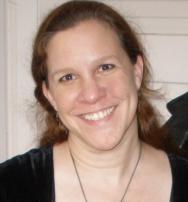As cities attempt to fill their coffers with revenue and tax money derived from sports tourism, it’s in their best interest to be able to shift gears quickly from one season to next. Single sports may provide a small, seasonal boost to municipal economies, but without a year-round program to keep the tourists coming, sports tourism will never be the kind of revenue-generator they hoped for. The city of Jacksonville, Florida apparently gets this idea; in addition to the usual suspects of sports, the city has been able to reach out into less common sports areas such as curling.
Rick Catlett, president and CEO of the Jacksonville Sports Council, recently told the Florida Times-Union that the nonprofit organization tasked with attracting sporting events no longer rests on the regular Jacksonville Jaguars games, the Florida-Georgia game, the TaxSlayer Bowl or even The Players golf tournament as the only outlets for national exposure.
“We’re trying to get sports like curling, like gymnastics and some of these other sports,” said Catlett. “The bottom line is to develop economic impact from sports. The curling thing was so unusual that there was excitement in the community… The people were truly interested.”
The sport, a regular fixture of Winter Olympic Games since it was introduced in 1998, experiences a bounce in interest among television viewers, spectators and even participants ever four years after a Winter Games.
While Jacksonville may not seem like a hot spot for curling, a recent national championship curling tournament that was held for eight days at Veterans Memorial Arena in Jacksonville generated a good response and attendance rates. Approximately 5,700 ticket holders appeared for the event, which marked the first time a national curling championship was held in Florida. According to Catlett, the curling tournament was organized in an effort to engage in “market sampling,” to determine how the community would react and how the athletes and their families visiting would enjoy their stay.
While the event wasn’t a huge moneymaker for the city, the curling championship didn’t result in a loss, either, and helped economic development officials understand the potential of more offbeat sports for the Jacksonville economy.
“Every deal is different. In the curling situation, we had to make sure that we made money off of the event and that worked out excellently,” Catlett told the Florida Times-Union. “These [curling] people drink so much Labatt’s and Molson [beers], it was unbelievable. They’re all either from Canada or Northern Ohio or Michigan and places like that.”
Paul Astleford, CEO of Visit Jacksonville, told the Times-Union’s Drew Dixon that cities can’t expect to reach their full potential on football and basketball alone.
“It’s not just the big-name events that we know are going to fill up hotels,” said he said. “Communities that are really into the sports world theme, they know that the greater the diversity, the greater exposure for the community.”

